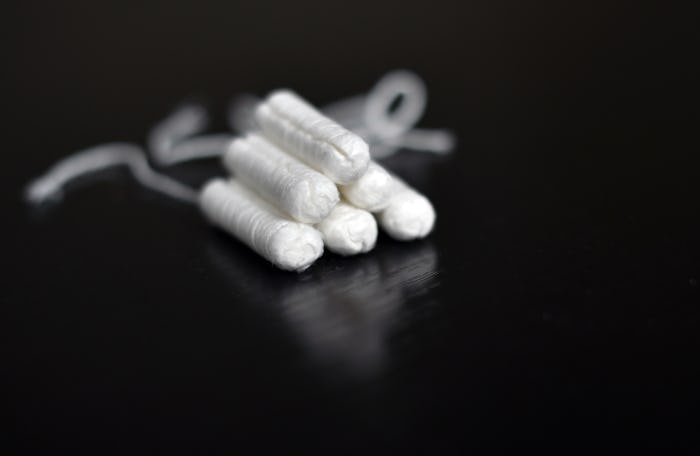Life

Do You Really Need To Have Your Period While On Birth Control? Science Says No
Another month, another visit from Aunt Flo. While menstruation can be a welcome confirmation that our birth control method is working, most women don't exactly look forward to it. But is it really necessary at all? According to NPR, women on birth control don't need a period, and an increasing number of them are opting out of it entirely.
Traditional birth control pills have three weeks of active pills and one week of placebo pills, designed to trick women's bodies into have a "fake" period, known as withdrawal bleeding. But it's actually not a period at all; since birth control pills prevent ovulation, there's no egg or uterine lining to shed. So what's the point of suffering through leaks, cramps, and headaches for a week? According to the NPR report, one of the Catholic doctors who invented the pill designed them to mimic a period in the hopes of gaining acceptance from the pope. Spoiler alert: it didn't work. And here we are over 50 years later, bleeding in a fruitless attempt to placate a man who was recently lauded for saying that avoiding pregnancy was "not an absolute evil." It's high time women took control over their reproductive cycles every week, not just three out of four.
Being on the pill doesn't mean committing to a lifetime of pointless periods. While there are pills that are specifically marketed to suppress periods down to four a year, according to the Mayo Clinic, any monophasic pill will do; simply toss that last week and start a new pack. Concerned that continuously taking the pill will screw up fertility? Don't be. The Mayo Clinic also advised that ovulation usually returns about two weeks after stopping the pill (also, anecdotally, my own son was conceived after about a decade of continued pill-popping, so those who put more weight into the statements of an Internet stranger than a bunch of doctors can rest easy).
But taking the pill is still a hassle (a hassle that doesn't ruin sheets, but still). And although it's 99 percent effective when taken at the same time every day, let's be honest: life happens. Sometimes we're late, sometimes we forget to take it until the next day. And while that doesn't render the pill useless, according to Planned Parenthood, it does reduce its efficacy to about 91 percent, which isn't ideal. Luckily, there are other options: hormonal intrauterine devices (IUDs), implants, and shots can also prevent periods, although they don't always, and there's no way to know if they will without trying. The good news is that even those who don't lose their periods will at least have easier ones; OB-GYN Paula Hillard told NPR that "nearly all women will have lighter, shorter and less painful periods after about six months" of IUD implantation.
And women are lining up in drove for those IUDs and implants. According to the Centers for Disease Control, long-acting reversible contraceptives are nearly five times more popular than they were a decade ago; a National Center for Health Statistics study found that usage among women ages 15 to 44 went from 1.5 percent in 2002 to 7.2 percent in 2011 to 2013. Hormonal implants such as Implanon and Nexplanon are more than 99 percent effective and last for three years, according to Planned Parenthood. Hormonal IUDs like Mirena and Skyla are also more than 99 percent effective, and last between three and five years, depending on the brand. The Depo-Provera shot lasts only three months, and efficacy ranges from 94 to 99 percent.
But what about the natural order of things? Do periods build up inside your body for years? Is it really OK to just not bleed anymore? I promise, it's fine, and if you don't trust someone who's been skipping periods for almost 20 years through one means or another, I have some experts lined up. OB-GYN Elizabeth Micks, speaking to NPR: "There's absolutely no medical need to have a period when you're on contraception." Valerie French, M.D., on Bedsider.org: "It is totally safe to go for months or even years without having a period." Linda Bradley, M.D., of the Cleveland Clinic: "The only real risk to using birth control to miss your periods is that there’s a small chance of breakthrough bleeding." But of course, the best source for patients will be their own doctors. What are you waiting for; call her or him now.